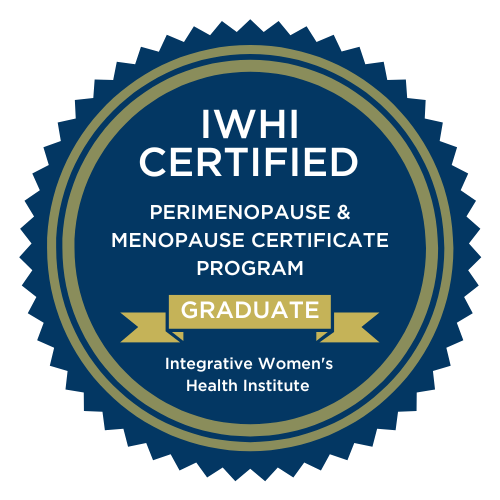In Part 1, I cover how the brain and our connection to food affect digestion.
“Our two brains-the one in our head and the one in our bowel-must cooperate. If they do not, then there is chaos in the gut and misery in the head-everything from “butterflies” to cramps, from diarrhea to constipation,” from Dr. Greshon’s book, The Second Brain.
- Don’t eat on the run. When you eat during your commute, your body registers you as being in motion, and this slows down the digestive process. We are probably the only society who ate on the run. I try to imagine the Romans eating in their chariots, or Native Americans eating on horseback. If you find such an image, let me know because I’d love to see it. It looks like Zeus is holding a Subway sandwich here, but it’s actually a thunderbolt, which in my opinion isn’t great for the digestion either.

- Don’t overeat. I remember reading about a study in one of Michael Pollan’s books (Omnivores Dilemma, or maybe it was In Defense of Food) where people were asked to eat soup and give their feedback. The soup bowls slowly refilled from the bottom unbeknownst to the slurping participants. People continued eating even though they were full. When asked what they thought about the soup they responded that they liked the soup, but it was too filling. Instead of listening to their stomachs, they tried to “clean their plates”. It’s a good idea to portion the food on your plate and then put the rest of the food away, instead of having large platters of food sitting in front of you.
Another interesting note on the effects of overeating, Dan Buettner and team study the world’s “Blue Zones,” communities whose spry elders live past age 100. The team records nine dietary and lifestyle habits of the elderly, and one of the common dietary habits is that they all eat small portions and don’t stuff themselves. They eat until they are about 80% full.
Overeating inflames the stomach lining, causes digestive upset and accelerates aging. “Fifty years of research have shown that when a nourishing diet is eaten sparingly, aging is retarded,” Paul Pitchford, author of Healing with Whole Foods.
- Don’t eat in front of the TV or talk politics while you eat. Emotions need to be digested as well as food. When you discuss politics or watch something stress-inducing while you eat, your digestion slows down and food sits in the belly and ferments. When you eat in front of the TV, you’re asking your body to take in nourishment at the same time you’re processing the latest war death tolls, or violent images on a CSI episode.
Make your meals a relaxing enjoyable experience. Digestive juices are inhibited by emotions of anger, fear and anxiety. Limit your dinner conversations to pleasant dialogue or better yet eat in silence. I attended a Wise Earth Ayurvedic workshop with 20 other women where we ate in silence everyday. It was an amazing experience to be so present with my nourishment. Those meals were the best meals of my life (not kidding). Not only because we ate in silence, but the chef who prepared our food cooked with loving intention and prayers and the food was bought from a local farmer the night before who made the ghee from the milk of local grass fed cows.
- Smell your food. Digestion starts in the brain before you even put the food in your mouth. This phase of digestion is called the Cephalic phase. The cephalic phase is triggered by the sight, smell, and memory of food. If we absently shove food in our mouths while multitasking we miss the stage of getting our digestive juices flowing; it’s like having an uninvited guest we (our stomachs) aren’t prepared for. Certain foods require different types of saliva or digestive enzymes, our senses help prepare our belly for that particular food. Our bodies produce between 1000-1500 ml of saliva a day. We need viscous saliva for cold liquids or milk, saliva high in protein digestive enzymes for flesh foods, ptyalin for starch, and serous saliva for acidic foods. Simple sugars digest through the membranes of the mouth. The cephalic reflex also stimulates HCL in the stomach, pancreatic enzymes and gastrin. Saliva also protects your teeth from acidic foods. People who have dry mouth are more likely to have tooth decay.

- Connect with your food. We have lost our connection to our food. We often get our meals from a box that was shipped from thousands of miles away; we stick it in the microwave and eat it with a fork in front of the TV. Many people don’t know what their food looks like in its natural state or where it even comes from. Buy local, or grow your food if possible. Prepare your meals from whole foods. Touch your food. Use your fingers to measure spices. A three-finger pinch is= ½ teaspoon, a five-finger pinch= 1 teaspoon, the size of your palm= 1 tablespoon, and the amount in your cupped hands=1 cup. Try massaging the rice or dried beans when you rinse them. Give thanks to where this food came from and all that went into its creation-the soil, sun, rain, bees, and the farmer. Your belly will thank you and you’ll absorb more of the nutrients.
- Chew your food! There are no teeth in the stomach! Each phase of digestion only does as well as the phase that came before. Chewing lubricates your food, mechanically breaks it down, and increases the surface area, so the enzymes can do their job effectively.
If you tend to get bloated and tired after a meal, try to incorporate the above steps. By following these tips you may save yourself a lot of money on supplements and doctor visits. Sometimes the best solutions are overlooked because of their simplicity.
In the next article, I will talk about how the lack of physical alignment can affect our digestion and what we can do about it. Read part 2 here.






